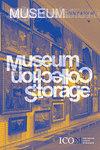Reparative Approaches to Philippine Collections at the University of Michigan
IF 0.4
4区 艺术学
0 ART
引用次数: 0
Abstract
Abstract The University of Michigan’s role in US colonial expansion resulted in the accumulation of one of the largest Philippine cultural and natural history collections in North America. It is time for the university to address its colonial complicity in the formation of these collections by developing decolonial practices so that the institution can provide reciprocal and reparative access to these Philippine collections. In response, the ReConnect/ReCollect project is currently developing and testing relative approaches for culturally responsive and historically minded stewardship of Philippine materials at the university. Our overall goal is to create both the framework and the corresponding set of practices that will intervene in contemporary scholarship and curation to pursue what constitutes reparative work for Philippine collections. We engage in three interrelated interventions: reparative curation, reparative connections to community and reparative scholarship. Our anticipated outcomes include a full inventory of the university’s Philippine collections, opening our collections for iterative and inclusive community engagement and the creation of a multiplatform toolkit for reparative actions. The first project of its kind for Philippine collections, this work holds far-reaching implications, offering a new vantage point from which to engage scholarly conversations around decolonising collections. Our project builds on recent efforts to decolonise collections, which foreground Indigenous perspectives and community collaboration, consultation and dialogue to construct a model of relationality and shared stewardship.密歇根大学对菲律宾藏品的赔偿方法
摘要密歇根大学在美国殖民扩张中的作用导致了北美最大的菲律宾文化和自然历史收藏之一的积累。现在是该大学通过发展非殖民化做法来解决其在这些藏品形成过程中的殖民同谋问题的时候了,以便该机构能够提供互惠和修复性的机会来获取这些菲律宾藏品。作为回应,ReConnect/ReCollect项目目前正在开发和测试该大学对菲律宾材料进行文化响应和历史管理的相关方法。我们的总体目标是创建一个框架和一套相应的实践,以干预当代学术和策展,为菲律宾藏品进行修复工作。我们参与了三种相互关联的干预措施:修复性策展、与社区的修复性联系和修复性学术。我们的预期成果包括对该大学的菲律宾藏品进行全面盘点,开放我们的藏品供反复和包容性的社区参与,并创建一个多平台的修复行动工具包。这是菲律宾收藏的第一个此类项目,具有深远的影响,为围绕非殖民化收藏进行学术对话提供了一个新的视角。我们的项目建立在最近的藏品非殖民化努力的基础上,这些藏品突出了土著人的观点以及社区合作、协商和对话,以构建一个关系和共同管理的模式。
本文章由计算机程序翻译,如有差异,请以英文原文为准。
求助全文
约1分钟内获得全文
求助全文
来源期刊

MUSEUM INTERNATIONAL
ART-
CiteScore
0.60
自引率
0.00%
发文量
0
期刊介绍:
In its new revised form Museum International is a forum for intellectually rigorous discussion of the ethics and practices of museums and heritage organizations. The journal aims to foster dialogue between research in the social sciences and political decision-making in a changing cultural environment. International in scope and cross-disciplinary in approach Museum International brings social-scientific information and methodology to debates around museums and heritage, and offers recommendations on national and international cultural policies.
 求助内容:
求助内容: 应助结果提醒方式:
应助结果提醒方式:


